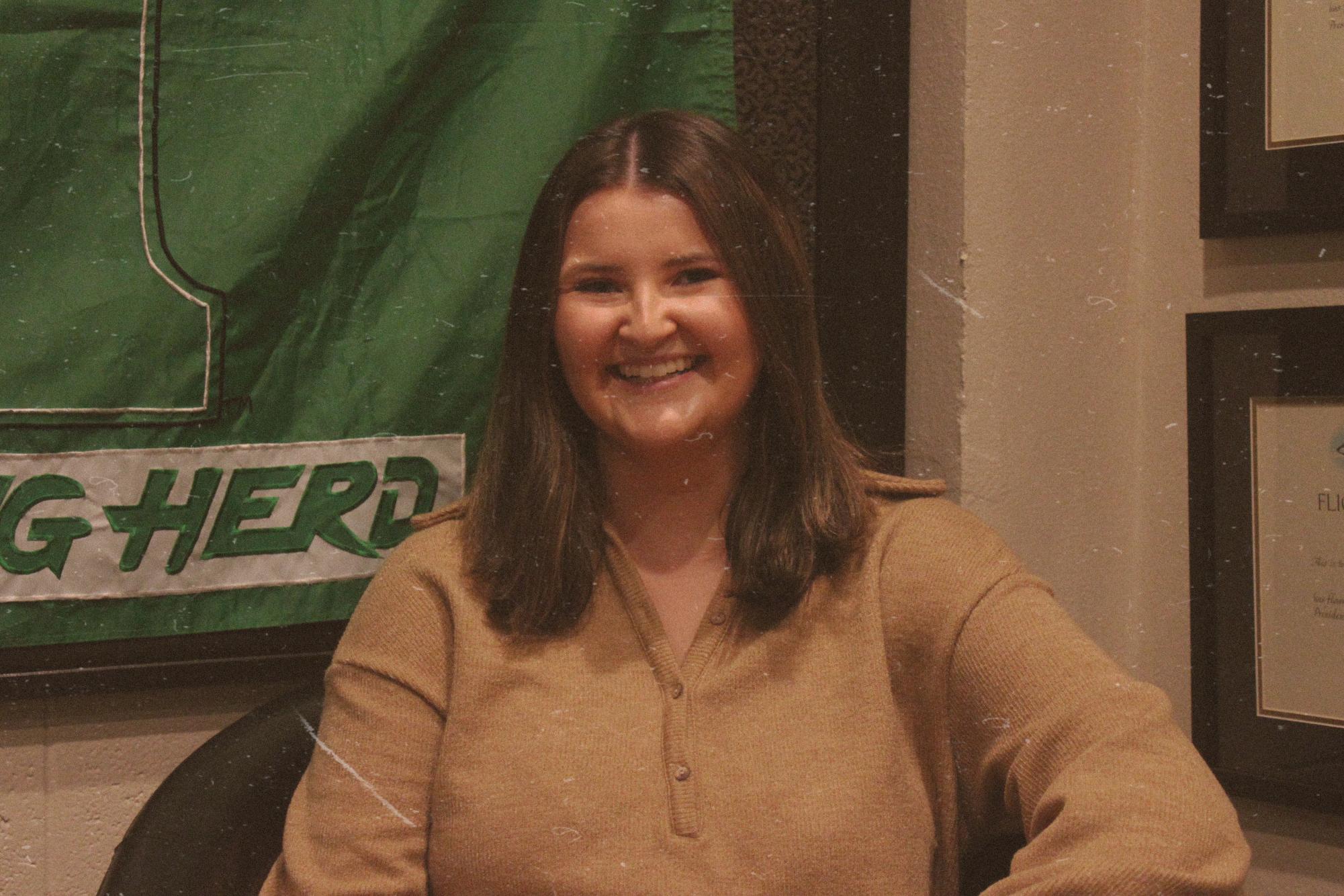Student journalist Kennie Bass walked into The Parthenon newsroom after transferring from West Virginia University in 1982.
Being assigned the economics beat, ex-athlete Bass requested to cover sports in addition to his mandated focus on econ. The editor’s decision to give him women’s basketball kickstarted Bass’ long-form career as journalist.
“While I did my assigned work with the department of economics, they allowed me to branch out and cover women’s sports to start covering sports. I was very thankful for that.”
Bass said Parthenon production in the 1980s was on a much larger scale than it is today.
“We produced four issues a week,” he said. “We did special issues, and we had a lot of content, big staff, and it was a really exciting time.”
His favorite aspect of the newsroom was the atmosphere.
“The camaraderie of being in the newsroom,” Bass said, “it was a really good staff.”

Bass said that his time with The Parthenon as a reporter strengthened his skills as a journalist, even though he transitioned to broadcasting.
“Writing is the foundation of everything; writing is the key to a story,” he said. “The process of how you investigate is the building blocks.”
Bass went on to serve as the paper’s sports editor and a contributing columnist. The headshot that aligned beside his work was unique to his identity.
“I wrote sports columns, and I remember I saw the first one I ever wrote. They didn’t have a photo of me because I was so young. So, in lieu of a picture, they used some clip art of a fish swimming in a weeded lake,” he said. “Because my last name is Bass.”
Outside of the newsroom, Bass worked with a large graduating class, including Marshall faculty members Christopher Swindell and Patricia Proctor. He also said that professors Ralph Turner and George Arnold had a profound impact on him.
After graduating from Marshall in 1985, Bass worked as a news reporter, sports reporter and sports director at WSAZ Newschannel 3 in Huntington, West Virginia. In 1997, he moved up 1-64 to WCHS Eyewitness News as the lead investigative reporter, where he still serves today.
Taking what he learned and experienced from The Parthenon, Bass worked on various investigative stories, including his series on governmental spending, “Waste Watch,” and his story on the murder of Leslie Marty, which led to the discovery of her body nearly 35 years after she was killed by her ex-boyfriend.
Bass’ biggest piece of advice to young journalists is to put your sources first.
“All of this has come about because of relationships,” he said. “The thing about an investigative journalist is you’re usually not in an alleyway with a flashlight with the mystery machine rolling behind you and a great dane who talks looking for clues. That’s not the way it works.”
“It’s through sourcing and relationships and digging and finding things that people help along the way that I think allows the most successful investigators to do what they do,” Bass said.
